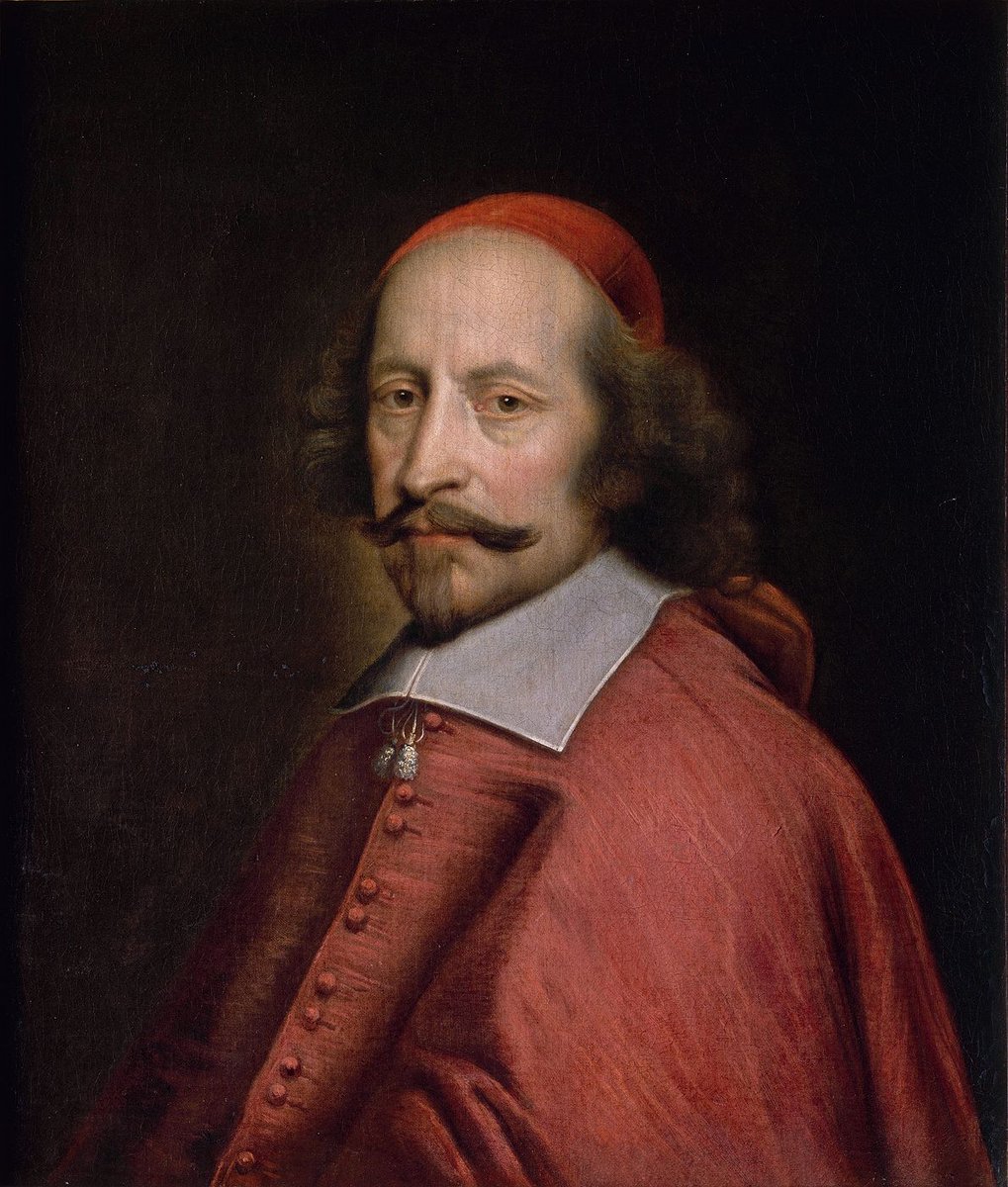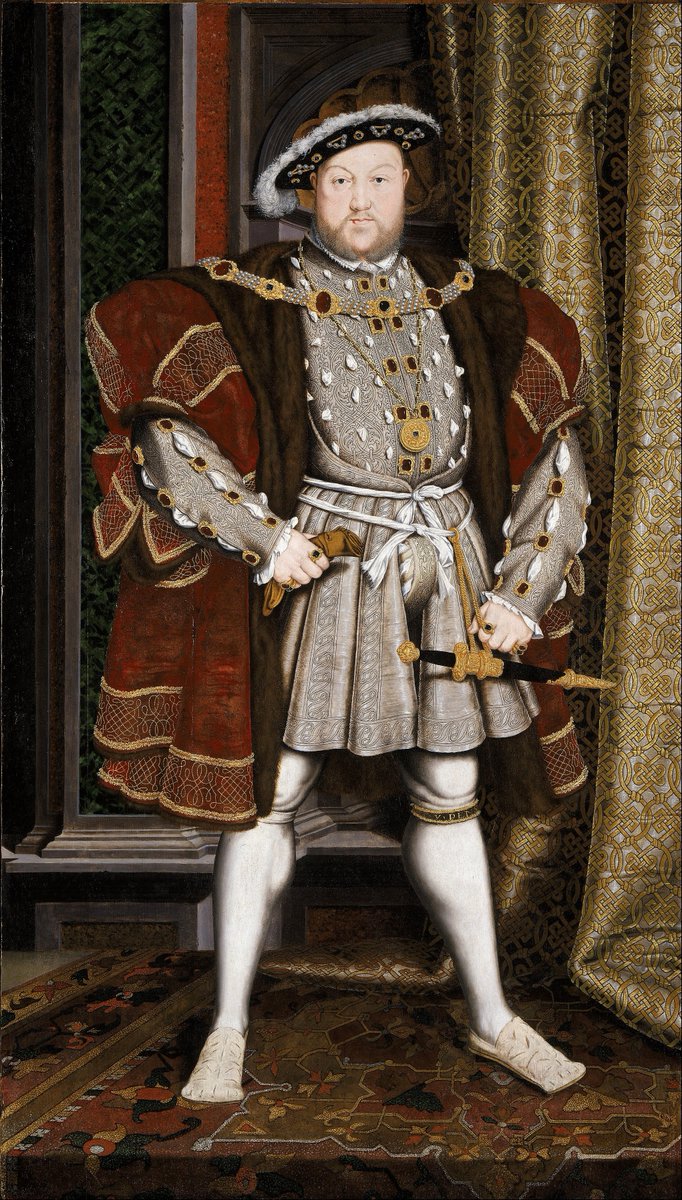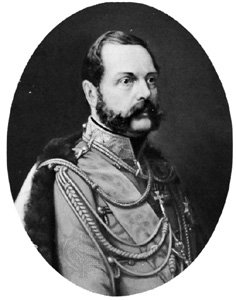
It is said that the candle glows the brightest towards its end. As a nation neared its end, a general took charge and prevented its fall, till he was killed and the nation collapsed.
Story in the evening ...
Story in the evening ...
https://twitter.com/Arby_K/status/1369113361548447751
Julius Valerius Majorianus may have been born around 420 to a distinguished Roman family. In 423, Western Emperor Honorius had died and Ioannes was elevated as Emperor. But soon the Eastern Emperor recognized his cousin, Valentinian, as Emperor. A civil war was imminent. 1/10 

Ioannes send out Flavius Aëtius, who had been a hostage as young boy with the Visigoths and the Huns, for help. But by the time Aëtius returned, Ioannes was already dead. Nevertheless, Aëtius retained a formidable role in the military. 2/10 

When Majorian came of age, he joined the military and was soon taken under the wing of his father's associate, Aëtius. Majorian soon made a name for himself fighting for Aëtius against Frankish King, Chlodio. Many Germanic tribes had carved out Kingdoms in Gaul and Iberia. 3/10 

But the loss of Africa to the Vandals led by Genseric in 435 would prove crucial for the Empire, since it was also its granary. The invasion by Attila's Huns made it much worse. In 454, Valentinian killed Aëtius, but was in turn killed by Petronius Maximus the next year. 4/10 
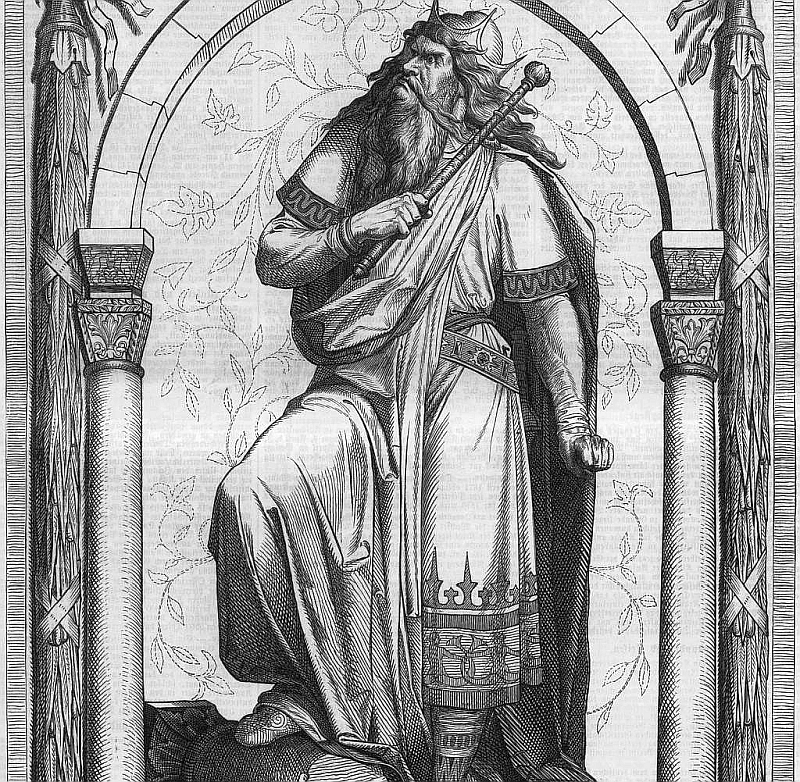
Majorian had grown up in the ranks by then and though he would plot with another general, Flavius Ricimer (Of Suevi origin) for the throne, it was Petronius Maximus who would become Emperor. This would bring Genseric to Rome and sack the city giving rise to "vandalism". 5/10 

Eparchius Avitus, who had gone to seek help of the Visigoths of Toulouse when the Vandal invaded, was made the new Emperor. Avitus would send the Visigoths to recover Hispania, but when they were busy in Hispania, Ricimer and Majorian would defeat Avitus in battle in Italy. 6/10 

With no clarity on who the Emperor was, a group of Alemanni invaded. Majorian defeated them, and the soldiers acclaimed him as Emperor for it, with Ricimer's support. The Eastern Emperor would eventually support Majorian and they would become Consular colleagues in 458. 7/10 

Majorian would seek to bring back the lost Roman territory by launching attacks on the Burgundians, the Visigoths and the Suevi. He would also bring about administrative changes that made him more popular in the Empire. 8/10 
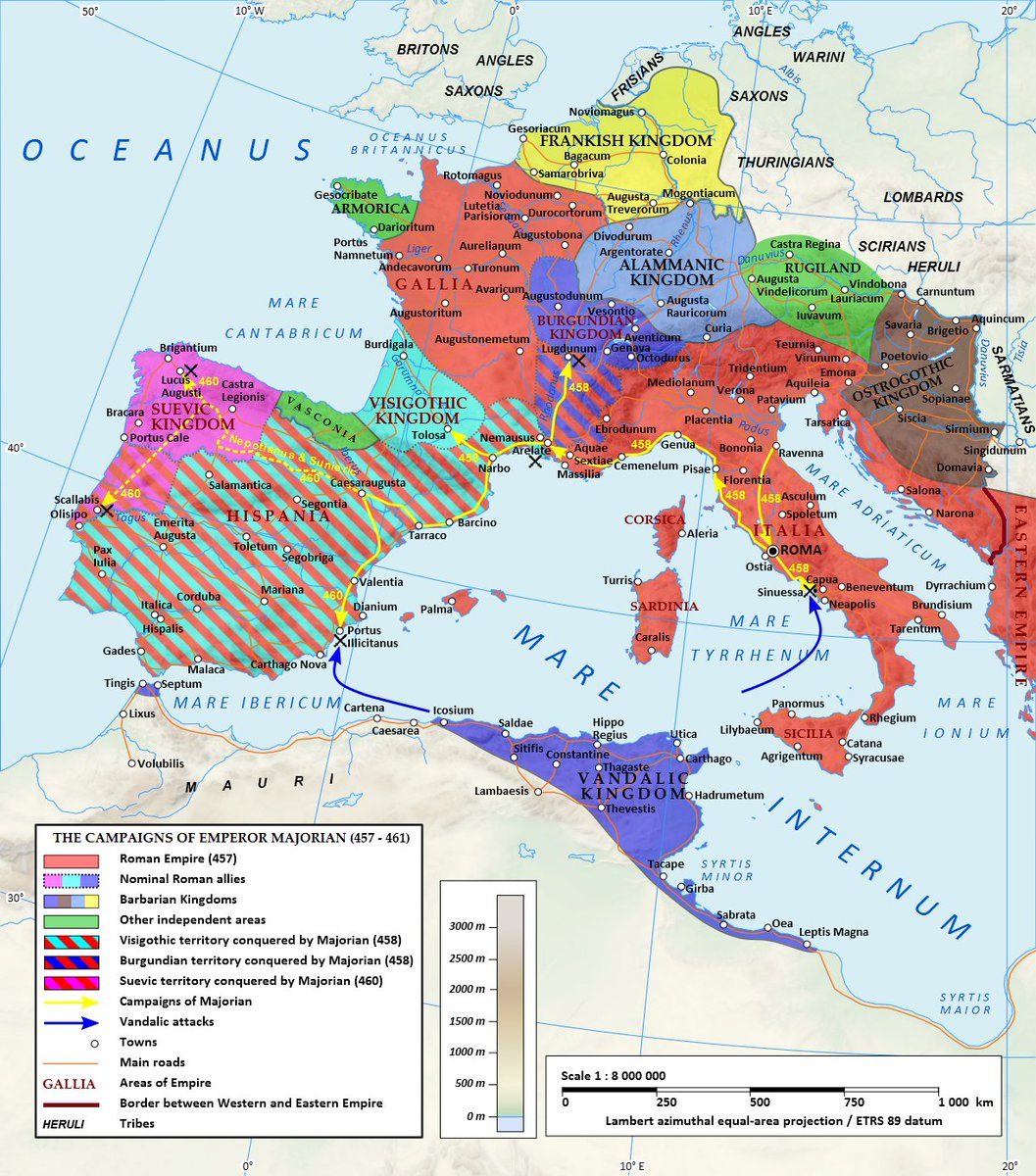
But a naval defeat against the Vandals near Cartagena would put pressure on Majorian. Ricimer, who had looked to rule from behind the throne like Stilico, would arrest Majorian as he returned to Rome, forcing him to abdicate and have him killed later. 9/10 

The deposition of Majorian would be unpopular and hasten the break up of the Empire outside Italy. Ricimer would install puppets to the throne, but with his death in 472, Sciri leader Odovacar would seize control of Italy ending the Empire in 476. 10/10 

I normally don't plug anything on these threads, but making an exception today. #Job
https://twitter.com/Arby_K/status/1370336337727950848?s=20
• • •
Missing some Tweet in this thread? You can try to
force a refresh




